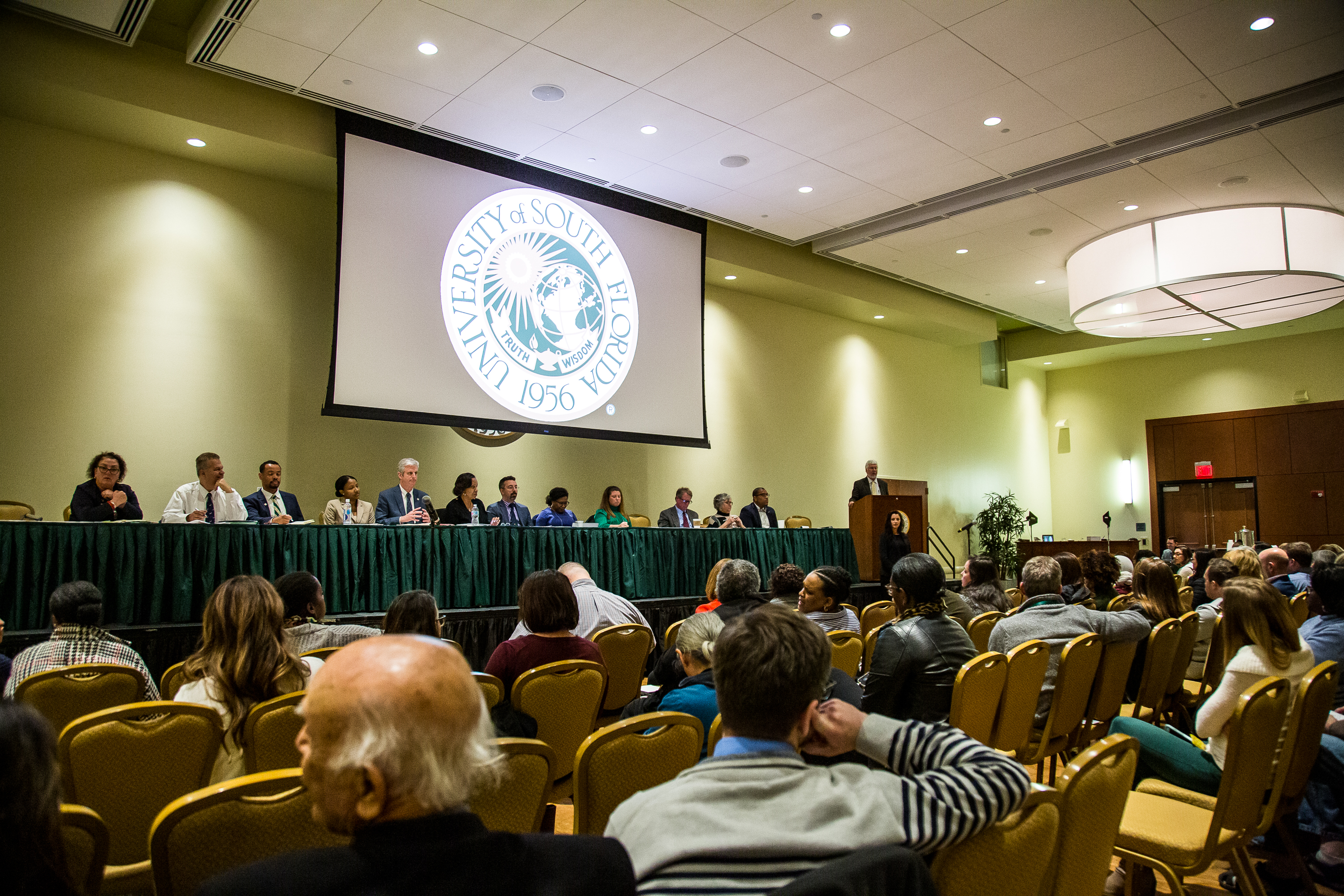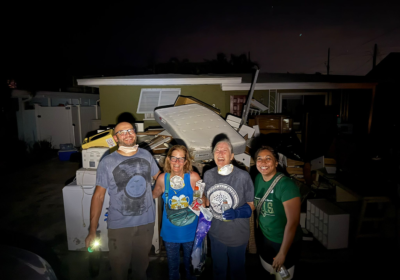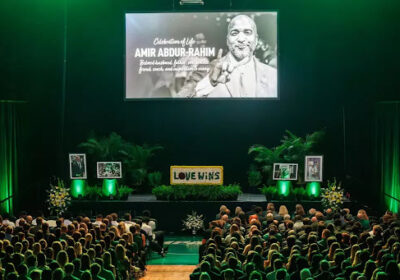USF faculty express concerns about diversity, respect

“Diversity,” “Students,” “Community,” “Research,” “Faculty” and “Opportunity” were a few words faculty, students and staff used to describe the USF campus.
Ironically, those same words were also used to describe USF’s weaknesses.
A three-question survey was sent out to about 300,000 people through email Dec. 20 asking about USF’s greatest “strengths” and “challenges.” This included over 50,000 students, 2,000 faculty and staff, and about 250,000 alumni.
As of Jan. 17, 2,600 people replied.
The “Principles of Community” task force, created by USF President Steven Currall, revealed the first wave of results at the town hall meeting held in the Marshall Student Center Ballroom on Tuesday afternoon.
In an email sent to the USF community Oct. 30, Currall said the purpose of the task force is to reinforce “inclusion, civility, open expression, evidence-based deliberations and vigorous debate.”
Chair and Dean of the Genshaft Honors College Charles Adams opened up the room for discussion after presenting the data in a word cloud graphic — a visual that gives greater focus to words by making them bigger in size if they are used frequently.
The room of about 100 attendees shared some of their suggestions to bring meaning to the words they saw within the cloud. Some of the suggestions to the task force included an emphasis on diversity, improving conflict resolution and creating mutual respect between staff and faculty.
Samuel Wright, a former USF ombudsman, worked on initiatives involving people of color on campus and helped with the creation of the Martin Luther King Jr. (MLK) Plaza in 1995.
Wright approached the microphone multiple times to demand equity and a better allocation of resources.
“The [Institute on] Black Life at USF has been watered down to almost absolutely nothing,” Wright said. “The Africana Studies department has been dwindling and dwindling and dwindling but yet we boast about an MLK Plaza. Where is equity at USF?”
Many speakers spoke about having respect for each other within their own departments or creating better relationships with the administration.
However, Assistant Vice President of Housing and Residential Education Ana Hernandez voiced her concerns about the treatment of staff on campus.
“As we look at inclusion and diversity I want us to look at all of the different roles that make this university run including the front-line staff that is answering the phones, the people who are cleaning the spaces, et cetera,” Hernandez said. “As we’re putting community teams together, we need to think about how we are representing the people who are making $25,000, $35,000, $45,000 a year.”
College of Nursing instructor Oscar Bernard discussed how respect and conflict resolution have been ongoing issues in his department.
“Some supervisors believe they can say anything they want in any way that they want when they have a poor performing staff member,” Bernard said.
The College of Nursing developed a civility team to keep up with the issue of respect with one another, according to Bernard.
Even though the crowd was made up of faculty and staff from various departments, most of the room hummed in agreement with Bernard after he shared his insight on the matter.
“We do all these surveys but we don’t do anything about them,” Bernard said.
Members of the task force ensured that after the completion of the town halls, the data from the surveys will be put to good use.
The second town hall will be held at the St. Pete campus Thursday from 2-4 p.m. in the University Student Center Ballroom, and the survey will close after the last town hall Jan. 27 in the Sarasota-Manatee Selby Auditorium from 2-4 p.m.
Currall will present the final principles after the task force members provide him with their recommendations Feb. 28.






